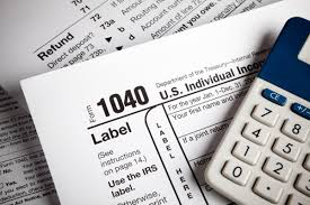
Do You Have The Best Tax Preparer?
Last updated: May 24, 2016
Watch out for these danger signals if you are planning on using an income tax preparer.
Every year taxpayers risk their personal financial information after choosing a tax preparer who misleads them, steals their identity or commits fraud with their return.
You can avoid becoming a victim by watching out for these eight danger signs.
1. A tax professional who does not have a Preparer Tax Identification Number (PTIN)
If you pay anyone to prepare your tax return, the IRS requires that they have acquired a valid PTIN to be legally allowed to prepare your income taxes. You can find any tax professional’s PTIN on the IRS’s Directory of Federal Tax Return Preparers.
2. Requiring you to pay an insurance penalty to them
Since the passage of the Affordable Care Act, people without health insurance may owe penalties. Most taxpayers have coverage through their employer or qualify for an exemption. The preparer should never request that clients pay them the penalty. If you do owe a penalty amount then it should be sent in with your return.
3. Tax Professional requests your signature on blank tax documents
All information written or printed on your return is you legal responsibility. Signing a tax return that is not filled out is like signing any legal document — it is always unadvisable to sign any blank form, contract, or document.
It is wise to carefully review all your paperwork before you sign. A signed document will take precedence over a verbal agreement, so if you decide to use a different tax preparer or income tax preparation service, they may still have legal powers you inadvertently granted.
4. Requesting you make a direct deposit into a financial account that is not yours
A preparer could try to persuade you that it is convenient or your refund will be processed more quickly, but it is not allowed by the IRS. Loss of your income tax refund is a very real possibility.
5. Charges fees based on the amount of your refund
Ask the preparer for his fee structure before you hire him. Fees based on a percentage of your anticipated refund may create an incentive to prepare a return with unwarranted deductions and credits that the IRS will disallow. You will be required to pay the balance, usually with penalties and interest. A flat or prearranged fee will reduce the chances of producing such incentives.
6. Uses your last pay stub instead of official tax documents
Tax preparers should request your records and receipts, as well as ask questions about your income and finances. Any preparer who files your return using your last pay stub instead of your W-2 is breaking IRS rules.
7. Gives the Implication of being endorsed by the IRS
People often get caught up in terms like licensed tax preparer (or certified tax preparer). The IRS will not endorse any tax preparer. It does recognize certain licenses, such as IRS licensed enrolled agent, attorney and CPA . The IRS does not permit its name to be used, or use the seal of the Treasury Department or of the IRS in advertisements.
8. Doesn’t offer internet e-filing
The IRS generally requires paid tax preparers who have more than ten clients to file electronically. They recommend you e-file your tax return and deposit the funds directly into your bank account for maximum security.
